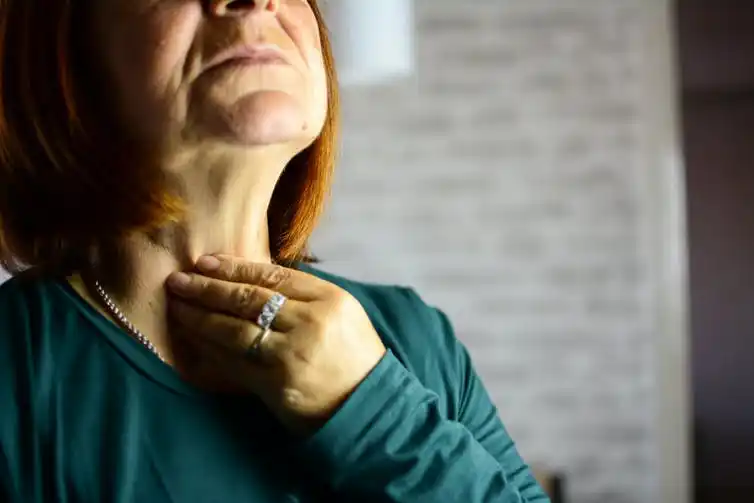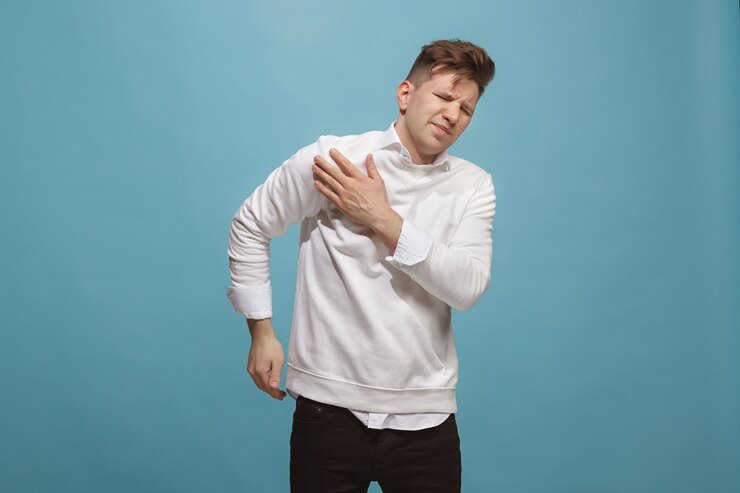Carmen was 44 years old when she started gaining weight and feeling more apathetic and sad than usual. Her coworkers blamed it on “that age women have” and the menopause. Although she was getting worse, no one gave it any importance.
When Carmen started going to the gym, she did well, but she was still sad. Her family recommended that she go on a diet, “because she was gaining more and more weight.” But she was unable to do so. Fatigue, constipation, dry skin, and brittle hair soon appeared. She found it increasingly difficult to concentrate.
Very worried, she went to the health center. Control tests were carried out and, eureka! The cause of her condition was finally known: primary hypothyroidism.
Hypothyroidism
In Spain, it is estimated that 9.1% of the population suffers from hypothyroidism. The figure is much higher if we take into account cases that have not yet been diagnosed.
Hypothyroidism is the most common problem of the thyroid, a gland located in the neck. It is more common in women and the risk of having it increases with age.
The thyroid releases the hormones T3 and T4, which are responsible for regulating metabolism. The release of both is, in turn, regulated by the thyroid-stimulating hormone (TSH).
If TSH levels in the blood are elevated, there is probably something wrong with the thyroid gland. Mainly because it does not produce T3 and T4 in adequate amounts.
Main causes of primary hypothyroidism
Primary hypothyroidism is usually caused by, among others, the following causes :
- The most common is Hashimoto’s thyroiditis, an autoimmune disease. This causes antibodies to be produced that attack the thyroid gland.
- A partial or total surgical removal of the thyroid gland, due to the presence of nodules or carcinoma.
- The side effects of radioactive iodine or radiation therapy.
What are the symptoms?
The most common symptoms of hypothyroidism are fatigue, drowsiness, weight gain, myalgia (muscle pain), arthralgia (joint pain), or decreased heart rate. Also arrhythmias, impaired fertility, depression, sexual dysfunction, diastolic arterial hypertension, or hypercholesterolemia.
Multiple studies have shown that women with hypothyroidism have a higher prevalence of sexual dysfunction and mood disorders.
The usual treatment, levothyroxine
The most common treatment for hypothyroidism is levothyroxine. It is usually very effective for most symptoms by normalizing TSH levels. It is an inexpensive medication with few side effects.
After starting treatment, control tests are usually carried out after 6 to 8 weeks. This checks that blood levels are adequate. The tests are then repeated after 6 months. If they are still correct, controls are carried out every year.
Levothyroxine does not cause significant side effects. However, if taken in larger quantities than recommended, it can cause tachycardia, tremors, or insomnia. Hence the importance of taking it in the correct dosage. Also daily and on an empty stomach (at least 4 hours on an empty stomach).
In general, if the treatment is followed correctly, the symptoms usually diminish quickly, allowing hypothyroid people to continue with their lives properly.
Now, if you take levothyroxine and achieve normal TSH levels, do all the problems go away? Although most of the important symptoms usually subside, some do not cease completely.
A recent study by the University of Castilla La Mancha (UCLM) has analyzed sexual function, mood states (depression and anxiety), and quality of life of women diagnosed with primary hypothyroidism.
Women who had been taking levothyroxine for at least 6 months and already had normal TSH levels were also included. The data were compared with those of participants who did not have any pathology.
- Sexuality. The results showed that, compared to 16.4% of women without pathologies, 31.6% of hypothyroid women had sexual dysfunction. The main problems reported were decreased desire, lubrication, and orgasm.
- Moods. Depression and anxiety are the predominant problems in hypothyroid women. These usually decrease with the taking of levothyroxine. In the UCLM study, it was seen how, despite taking the medication and presenting normalized hormonal levels, 13.1% of the participants had depression, and 29.1%, had anxiety. In women without hypothyroidism, the percentages were 4.6% and 16.7% respectively. Due to the COVID-19 pandemic, these data may increase. Different studies are showing how anxiety and depression are increasing. Especially in women.
Health professionals should be aware that the incidence of sexual dysfunction is high in hypothyroid women. It may also increase the possibility of undiagnosed depression and anxiety, even in those who are being treated with levothyroxine.
In annual check-ups, it would be interesting to emphasize these aspects so that they can be treated. A multidisciplinary vision (doctors, psychologists, nurses, nutritionists, sexologists…) in the face of hypothyroidism could help alleviate many symptoms.
Taking levothyroxine appropriately, exercising regularly, or having healthy eating habits can help improve the quality of life of people with hypothyroidism. Also, managing emotions appropriately or performing techniques that reduce stress.![]()























+ There are no comments
Add yours